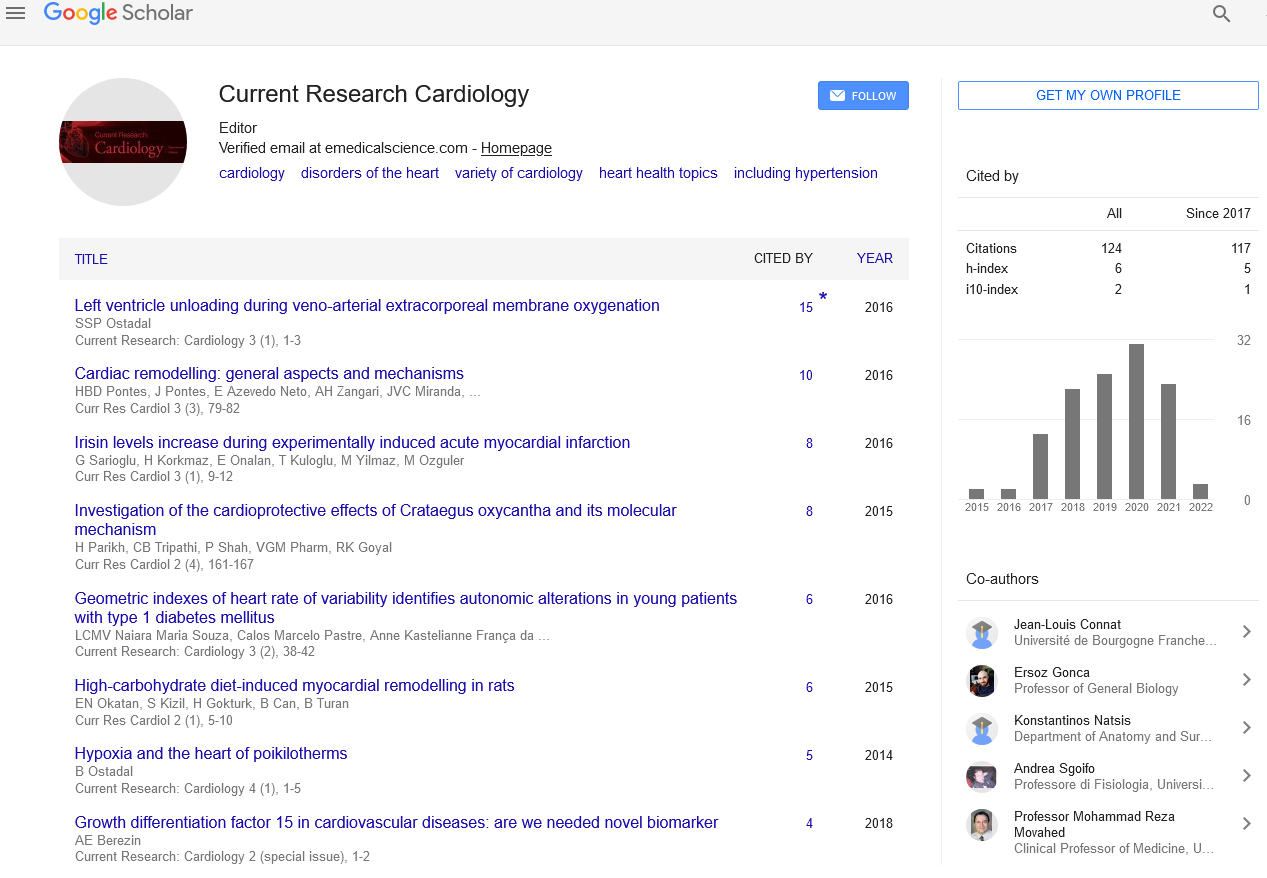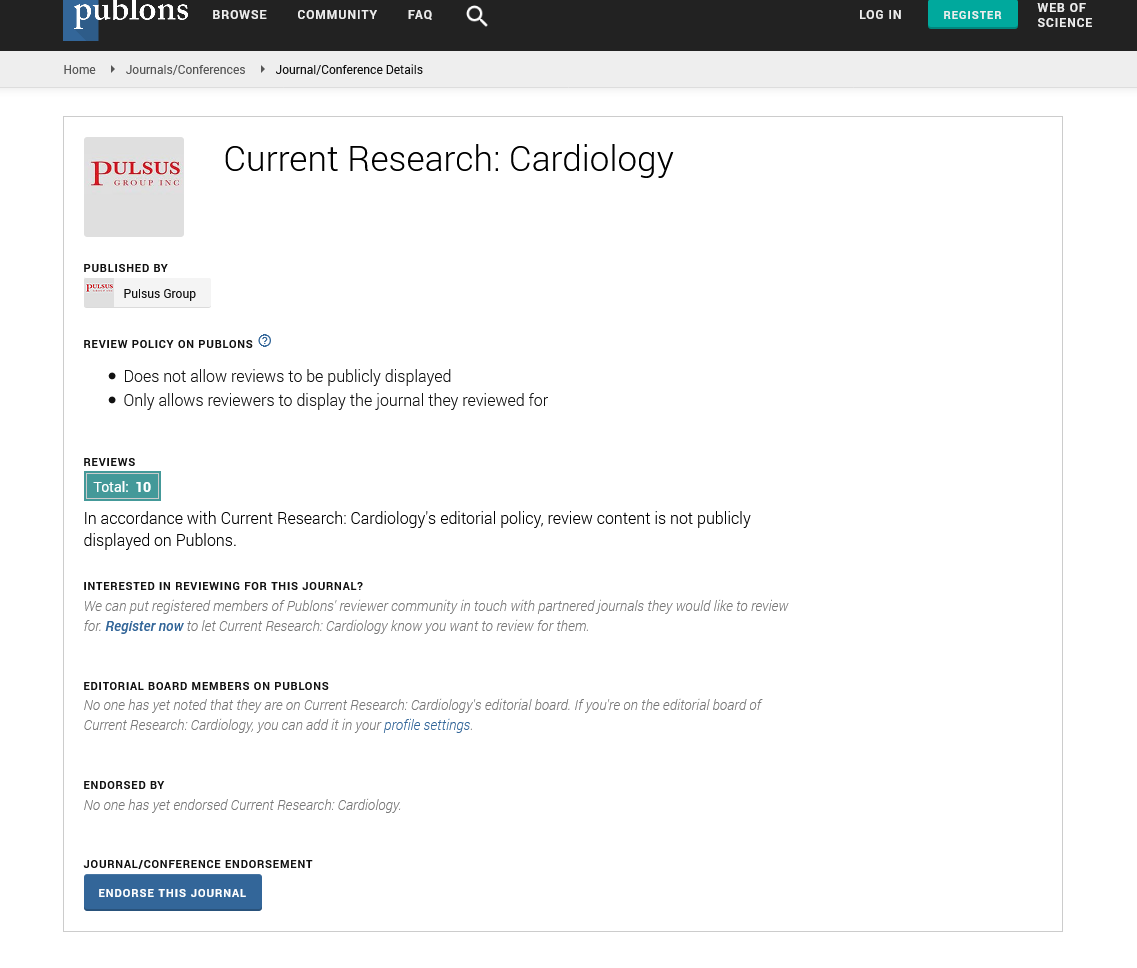The scope and research of vascularis these days
Received: 28-Aug-2017 Accepted Date: Aug 30, 2017; Published: 10-Sep-2017
Citation: Connat JL. The scope and research of vascularis these days. J Vas Dis Treat. 2017;1(1):1.
This open-access article is distributed under the terms of the Creative Commons Attribution Non-Commercial License (CC BY-NC) (http://creativecommons.org/licenses/by-nc/4.0/), which permits reuse, distribution and reproduction of the article, provided that the original work is properly cited and the reuse is restricted to noncommercial purposes. For commercial reuse, contact reprints@pulsus.com
Dear researchers from all part of the world, I am glad to present to you a new Journal that will fit with your expectations in the field of vessels studies. Although vessels represent the most part of the cardiovascular system, with their 62 000 miles long (100 000 km) and their huge diversity in structure and function, only relatively few studies focus on them. Vessels dysfunctions are however responsible for many important diseases that could seriously invalid humans or even kill them. Among these diseases due to vascular dysfunction, the most famous is certainly atherosclerosis but also rise in blood pressure inducing an increase in cardiovascular risk (CVR). Vessel physiology is also implicated in headache, venous troubles, inflammatory diseases as Horton diseases and many others. According to WHO, cardiovascular diseases are the principal cause of human death in the world. Around 17.5 millions persons died in 2012 because these illness, corresponding to near one third of the total deaths in the world. The main causes were coronopathy (42% of deaths) and brain vascular diseases (38%), both due to atherosclerosis. If many studies have focussed on heart diseases, far less numerous are the research concerning vessels themselves.
Today, 1 174 216 references in PubMed are found dealing with heart, corresponding during the last 5 years to around 45 000 papers a year. In fact, people working on vessels are quite disappointed when they want to publish their results. Only very few media are available focussed on the field of vascular pathophysiology and vascular diseases treatments. Thus, the 21 000 annual papers concerning blood vessels and approximately 600 on lymphatic vessels are dispatched in a large number of different journals not typically devoted to blood vessels studies. Our aim is to offer a large forum to welcome studies dealing from all aspects of vascular anatomy, physiology, pathology and treatments of vascular diseases, including all the aspects concerning lymphatic vessels. Studies on cultured smooth muscle cells and endothelial cells will be greatly appreciated together with those concerning cell to cell communication, electrophysiology, role of adventitia (fibroblasts, monocytes and macrophages, but also innervation of the vessel wall) or extracellular matrix. Studies on invertebrate models are also welcome if they potentially can help understanding of vertebrate vessels or conduct to potential applications on humans. Thus authors will find in this journal an optimum media to disseminate and share their research in a specialized audience interested by all aspects of vessels development, anatomy, aging, innervation, pathologies and treatment of these pathologies, including studies dealing with natural medicines or adaptation of life style. Of course, authors must adapt the length of their text to the novelty/importance of their data. I encourage everyone to send us their exiting new manuscripts to enhance a rapid progress in the comprehension of vascular wall development and physiology and consider new perspectives in the medical approaches of vascular pathologies.






